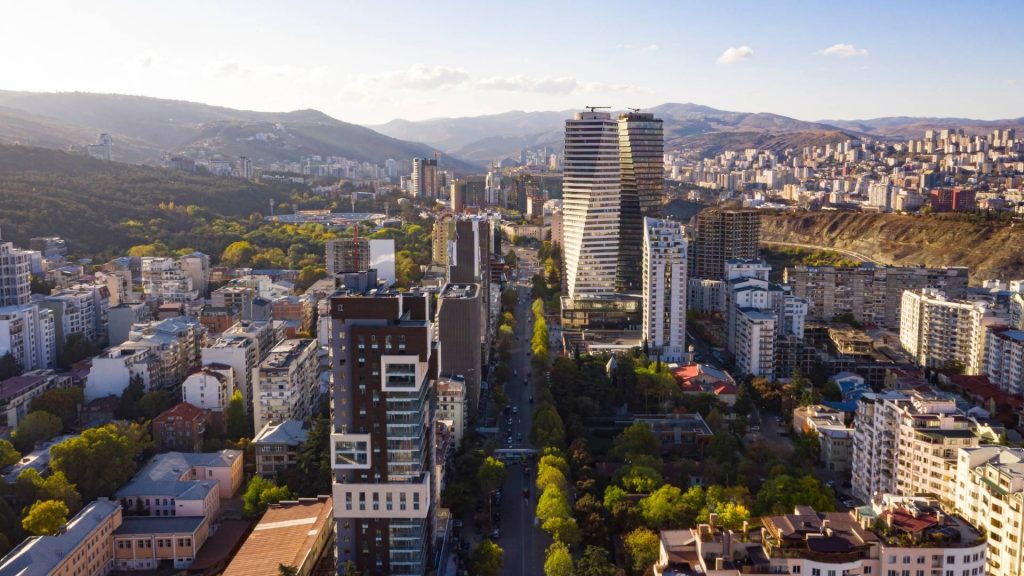Introduction

The Republic of Georgia’s real estate industry is a dynamic force that shapes the urban landscape, economic growth, and individual aspirations around the world. While developed Western countries boast mature and well-regulated real estate markets, the Republic of Georgia offers a unique perspective with its own set of characteristics and challenges. In this comprehensive article, I delve into the distinct traits of Georgia’s real estate industry compared to more developed markets in the West. I examine both the positive and negative aspects, shedding light on the factors that set Georgia apart in this global sector.
Historical Context and Cultural Influence
Good: One of the most intriguing aspects of the Republic of Georgia’s real estate industry is its deep-rooted historical context and cultural influence. The country’s long history, influenced by various civilizations, has left an indelible mark on its architecture and urban planning. This heritage creates a diverse and distinctive real estate landscape, where modern developments coexist with centuries-old structures.

Bad: While the historical influence offers unique charm, it can also pose challenges. Preserving historical structures while accommodating modern development requires careful consideration and expertise. Without proper regulation, there’s a risk of damaging or demolishing valuable heritage sites, leading to the loss of cultural identity.
Lack of Regulation and Transparency
Good: The Republic of Georgia offers a relatively unregulated real estate market compared to more developed Western markets. This flexibility can be advantageous for investors seeking quick and hassle-free property transactions. The absence of strict regulatory procedures can streamline the buying process and attract foreign investment.
Bad: However, this lack of regulation can also be a double-edged sword, leading to construction issues. The absence of standardized practices and consumer protections can leave buyers vulnerable to fraudulent activities, misinformation, and unfair practices. This poses a risk to both local and foreign investors, potentially damaging the market’s reputation.
Cost Advantage and Real Estate Investment Potential
Good: Republic of Georgia real estate market offers a cost advantage that is particularly appealing to foreign investors. The lower property prices compared to Western markets can attract investors looking for affordable opportunities with the potential for high returns. This cost advantage extends to construction and development, making it an attractive destination for real estate projects.
Bad: The low property prices can also be indicative of market instability or undeveloped infrastructure. Investors must carefully weigh the cost advantage against potential risks such as fluctuating property values or inadequate facilities, which could impact the long-term sustainability of their investments.
Emerging Market Opportunities for Real Estate
Good: The Republic of Georgia real estate market is still emerging, presenting ample opportunities for growth and development. The country’s economic progress, strategic location, and evolving business environment have contributed to the emergence of various real estate sectors, from residential to commercial and tourism-related properties.
Bad: While emerging markets offer potential, they can also carry uncertainties. Rapid development without proper planning can lead to issues such as overconstruction, property oversupply, and market volatility. Investors need to carefully assess market trends and long-term prospects before committing to projects.
Cultural and Lifestyle Appeal
Good: Georgia’s unique culture, rich history, and stunning landscapes contribute to its cultural and lifestyle appeal. The country’s distinct identity, warm hospitality, and diverse experiences make it an attractive destination for tourists and expatriates. This appeal can drive demand for real estate, particularly in tourism-centric areas like Tbilisi and Batumi.
Bad: While cultural appeal is an asset, overreliance on tourism can lead to market vulnerability. Relying heavily on a single sector can expose the market to fluctuations in tourist arrivals, economic downturns, or geopolitical factors that impact tourism.

Future Development Potential
Good: The Republic of Georgia real estate industry offers significant potential for future development. The country’s strategic location as a crossroads of Europe and Asia, combined with its ongoing efforts to improve infrastructure, make it an attractive destination for trade and commerce. As the economy grows, the demand for commercial and industrial real estate is likely to increase.
Bad: The rush for development can lead to urban sprawl and infrastructure challenges if not properly managed. Rapid construction without adequate urban planning can result in traffic congestion, inadequate public services, and environmental issues. Balancing growth with sustainability is crucial for the long-term health of the real estate industry.
Conclusion
Georgia’s real estate industry stands as a unique and distinctive player in the global market. Its historical context, lack of regulation, cost advantage, emerging opportunities, cultural appeal, and future potential all contribute to its character. While these factors offer opportunities for investment and growth, they also come with challenges that must be navigated thoughtfully. As Georgia continues to evolve and develop, finding the right balance between preserving its unique identity and embracing modernization will shape the trajectory of its real estate industry, setting it apart from more developed markets in the West.
